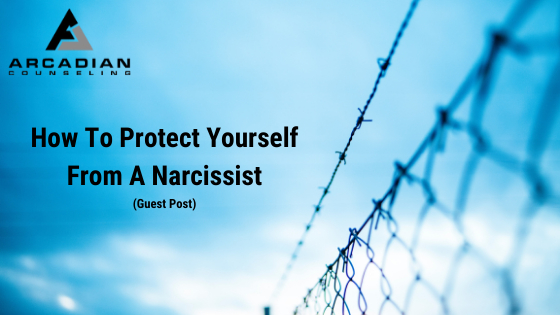Narcissists are known for their charm and infectious enthusiasm, showing this side only to distant admirers. But living or working closely with a narcissist can be harmful to mental health and, at times, outright dangerous.
If you want to survive the encounter with a narcissist, you will have to follow specific rules. So, here’s how to protect yourself from a narcissist if they are your ex or a relative.
1. Determine the type of narcissist you’re dealing with
The inner core of all narcissists consists of deep insecurity, hypersensitivity, and self-loathing behavior. But they also fall into several types with individual character traits. Spotting them is the first line of defense against a narcissist.
The most common types are grandiose, covert, and malignant narcissism. A grandiose narcissist is constantly seeking attention and is annoyingly arrogant. Covert narcissists are mostly passive-aggressive and look like they’re always depressed. Finally, the malignant type is inclined to criminal behavior – they steal, cheat, and lie. When a narcissist goes to jail, they will still blame others for their misdeed.
Knowing which type of narcissist is in front of you can help you develop a protective strategy.
2. Be aware of the tactics they use
Narcissists have plenty of psychological tactics to manipulate other people. For example, they use a “sympathy” tactic to make others admire them. But they also have sophisticated ways of bullying and abusing their victims, aka their scapegoats.
Their favorite methods are gaslighting and telling lies, often pathologically. Your best weapon against gaslighting is holding on to your truth and trusting your gut. And note that it is useless to confront them. They will probably make you responsible for their lies, saying, “it’s your fault because you’re not supportive,” etc.
3. Distance yourself from a narcissist
If you are in a relationship with a narcissist or recently broke up, find a way to block any communication with them. You need to get rid of a narcissist as soon as possible, mainly if they’re already abusing you. They won’t change and start treating you right. Once you’ve become their victim, they won’t let go.
If you’re married to a narcissist and are afraid to leave because of possible revenge, try to trick them. For example, to get rid of a narcissistic husband, you must become less attractive to him regarding personal gain (finances, good looks, etc.).
Make them turn on their comparison thinking, e.g., he deserves someone prettier and more successful than you. And don’t let him discover you’re doing this on purpose because it’s your best chance to escape narcissistic retaliation.
4. Record everything
If you’re planning to divorce a narcissistic husband or wife, keep in mind that they will try to make you pay for leaving them. One of the favorite revenge tactics in a narcissist’s arsenal is taking away the most valuable thing from their “enemy.” How far will a narcissist go for revenge? It depends on how creative they are.
If you have kids, one of the possible malignant narcissistic revenge tactics will be winning the custody battle and getting you to pay child support. So what to do if a narcissist threatens you and says that they’ll take away the kids? First, don’t take it lightly and find a lawyer. Second, record every conversation, email, and text message to prove in court.
5. Don’t engage emotionally
It’s easier to protect yourself from narcissistic rage if you’re out of their reach. You just block a narcissist on social media and change your phone number. But unfortunately, it’s not always possible for everyone, such as ex-spouses who are stuck in co-parenting.
If you’re in a similar situation, hold on to your inner serenity. Stay calm and don’t take it personally. Imagine that you’re separated by a mental wall from a narcissist and only use dry facts when talking to them.
6. Set personal limits
Setting limits is especially crucial when caring for someone with a narcissistic personality disorder. It may be a parent, mother or father-in-law. An aging parent with narcissistic traits will devalue all your efforts and demand more attention and time. Calmly state what you can do for them and what is out of your responsibility.
To avoid burnout, restrict the time spent with this person and engage more often in various social activities. Regular talks with a mental health professional are also beneficial when defending yourself against the aging narcissist. It will help to sort out all thoughts and stay sane.
Dealing with a narcissist is always complicated. So, you need to avoid their rage and protect yourself from possible retaliation. Hopefully, following the rules above will help you stay safe.
Natalie Maximets is a certified life coach and a contributing writer at OnlineDivorce.com. She helps people survive fundamental life changes and improve interpersonal relationships.




